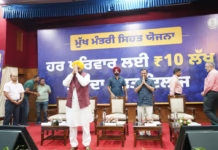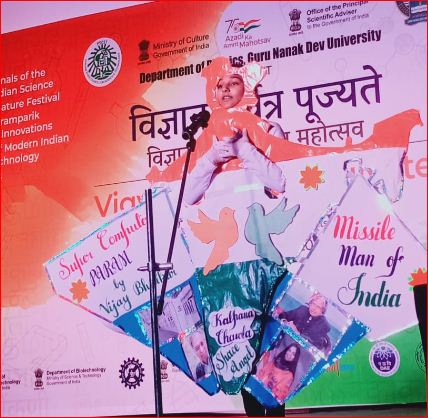DC Barnala check stubble burning, appeals to manage crop residue
KI Singh/ royalpatiala.in/ Barnala
Deputy Commissioner Barnala Tej Partap Singh Phoolka, on Tuesday, visited various villages of the district to review the situation of stubble burning and appealed the farmers to not to burn crop residue. DC said that instead of burning stubble, the farmers should opt the eco-friendly methods with the help of modern agricultural implements which are being provided by the Punjab Government on 80 percent subsidy. He added that these implements are also available on affordable rental rates at as many as 250 custom hiring centers across the district.
On the occasion, Sukhwinder Singh Grewal, a farmer of Kothe Sran Handiaya, said that they have not burnt the stubble from last two years as they have been mixing the crop residue in the soil with the help of machines provided by the government on subsidy. He added that they were also sensitizing other farmers to not to burn crop residue by highlighting its ill-effects on environment.
DC Phoolka urged the farmers who set their fields in previous years to adopt the eco-friendly methods to manage the paddy stubble this season. He added, “The positive effects of mixing the crop residue in the soil will definitely change their mindsets as the yield increases in the fields where stubble has not been burnt. It also requires lesser amount of chemical fertilizers which would also reduce the input cost.”

On this occasion, ADO Sukhpal Singh, ADO Gurwinder Singh, Kuldeep Singh Grewal, Jagroop Singh, Bhupinder Singh, Gian Singh, Gursewak Singh among several others were also present.
On Monday “describing the progressive farmers, who have refrained from burning paddy stubble, as pioneers of change, Punjab Chief Minister Captain Amarinder Singh called upon them to join the state government in launching a massive campaign to persuade the entire farming community to give up this dangerous practice in the interest of environmental protection for the future generations.”













